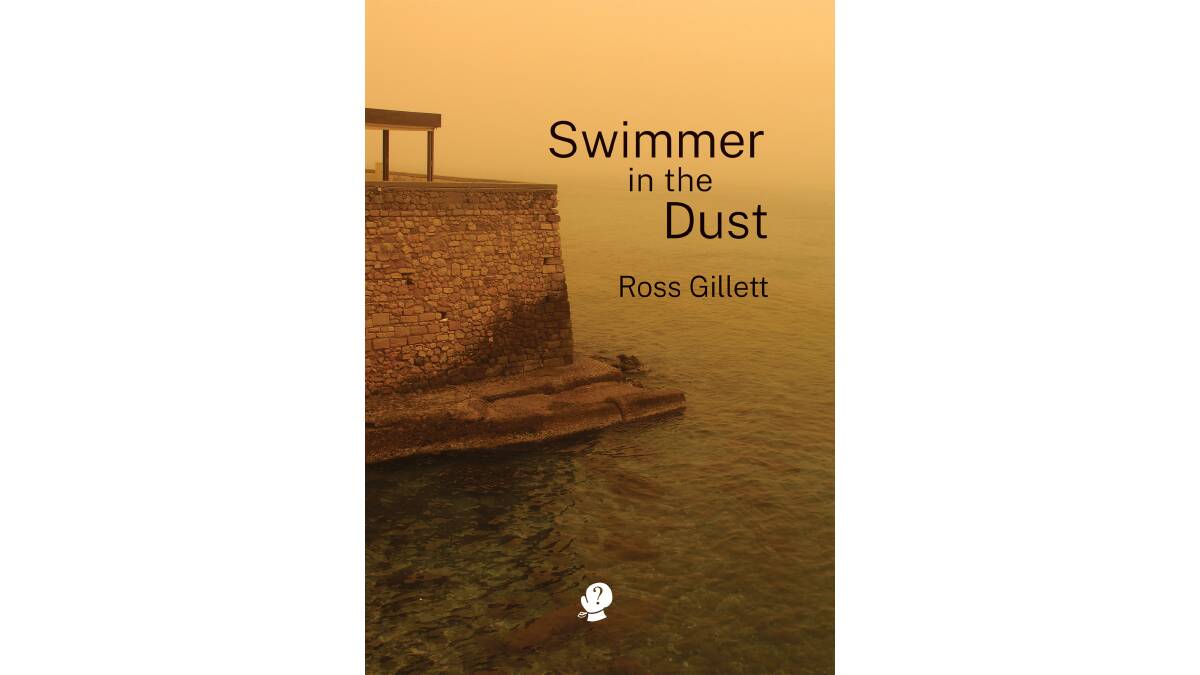
Although the subjects vary considerably throughout Swimmer in the Dust, a constant element in Ross Gillett's work is his musicality. It's not the relatively predictable kind espoused by Swinburne (or Henry Kendall) but a more subtle and contemporary variety, influenced perhaps by Wallace Stevens.
Subscribe now for unlimited access.
or signup to continue reading
One hears it plainly, for instance, in the last seven lines of Gillett's poem, "Onshore": "Our garden's crowded with the sound of breakers. // You yearn for weightlessness. I tell you / we're dwelling in it. Beach mist climbs the dunes, / wanders the neighbourhood and settles in. / / We live with spindrift stranded in the street / and rumours of the sea in every room. / Time hardly knows it has us in its hands."

It's hard not to relish echoing of "dunes" and "rooms", the assonance in "crowded" and "sound" and the sustained alliteration in "spindrift", "stranded" and "streets". In addition to this there's the dangerous, but successful, personification of "spindrift" and "Time", the latter evoking our cosmic vulnerability and the former the almost homely nature of the spindrift mist as it "settles in".
A further element Gillett seems to have rescued from the past and re-employed effectively is mythology, both Christian in some of the book's opening poems and Greek in "Daedalus and Son". In the latter he takes on a subject already covered brilliantly by Auden in "Musée des Beaux Arts" and brings an extra human dimension to the key figures in the story, including Icarus's mother. We hear Daedalus telling the departed Icarus: "By day your mother still sings / as she builds you a shrine of sun-baked salt".
Another measure of Gillett's technical skill is a series of sonnets scattered through the book, most of them rhymed (using both full and half rhymes) and others in blank verse. The "South Coast Sonnets" are probably the most striking but there are several others including "Complaint", a playful jeu d'esprit on the cosmos and "Trajectory" with its beautifully resonant final couplet: "Soon you'll hear the endless silence sing. / The last chord remembers everything."
It's notable, too, that Gillett seems to understand the technical demands of free verse just as well. The most sustained example of this is his six-page "Remembering Iraklion" - an eminently superior travel poem which captures both the essence of the city (in a dust storm) and the emotions of the young couple encountering it for the first time.
Gillett's third collection, The Mirror Hurlers, was described by its publishers as having the qualities of "intensity, complexity and clarity". This, his fourth collection, has all these and more. Hopefully, it will help gain him the closer and wider attention that his work clearly deserves.

